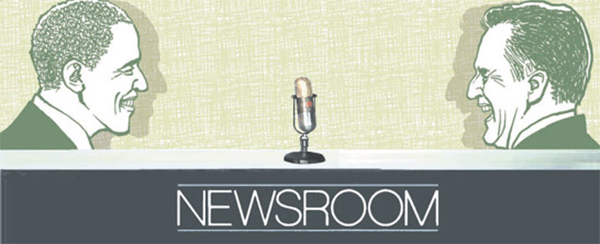The concept of a well-informed electorate transcends mere civic duty; it is intrinsically connected to the very spiritual fabric of society, particularly within the teachings of the Bahá’í Faith. In a world fraught with polarization and disinformation, the Bahá’í perspective offers a multifaceted approach to fostering an electorate imbued with knowledge, empathy, and ethical responsibility. This essay elucidates how the principles of the Bahá’í Faith accentuate the necessity of nurturing an enlightened citizenry, establishing it as a pivotal commitment in the advancement of civilization.
At the heart of Bahá’í teachings lies the assertion that knowledge is a form of light. This metaphorical illumination acts as a guiding beacon for individuals navigating the complexities of societal choices. Just as a ship captain relies on the constancy of stars to steer through treacherous waters, the electorate, too, must ground its decisions in empirical understanding and moral rectitude. A populace educated in the nuances of socio-political dynamics becomes an embodiment of this light, reflecting informed values and authenticity within the electoral process.
To create a well-informed electorate, one must first foster a culture of inquiry. Education, as enshrined within Bahá’í principles, extends beyond traditional paradigms; it encompasses a holistic form of growth that nurtures both intellect and spirituality. The Bahá’í teachings emphasize the importance of investigating truth independently, encouraging individuals to explore diverse viewpoints. This foundation assists in dismantling the barriers of ignorance, prejudice, and superficial engagement with political matters. Through diligent study and discourse, citizens can assay the veracity of information, thus contributing to a more profound understanding of democratic engagement.
Moreover, the potency of informed citizenry rests not merely in amplifying voices but in harmonizing them towards a common purpose. Bahá’í teachings advocate for the principle of unity in diversity, permitting a myriad of perspectives to coexist within a collaborative framework. An informed electorate embodies this philosophy, merging divergent opinions to enrich the public discourse. By listening, empathizing, and learning from one another, individuals can transcend biases and work synergistically towards collective prosperity. This cultivation of unity is paramount in a society fragmented by discordant ideologies.
Importantly, engagement in the electoral process is not a passive endeavor; it is a spiritual responsibility. The Bahá’í Faith unequivocally extols the virtues of service and stewardship as integral to an individual’s spiritual journey. Seeking knowledge about candidates, policies, and civic implications resonates with the Bahá’í commitment to serving humanity. This engagement propels individuals beyond apathy, transforming them into proactive participants who recognize their role in shaping a conducive environment for all. An ethos of responsibility fosters civic virtue, empowering people to make decisions that reflect their higher principles.
In a globalized context, the Bahá’í teachings also stress the interconnectedness of humanity. An informed electorate is not limited to the local sphere; it acknowledges the broader implications of national decisions on a global scale. With the burgeoning challenges of climate change, economic inequality, and social justice, understanding the interdependence of nations becomes vital. Every vote carries ramifications that echo far beyond the immediate community. This global perspective stirs a moral impetus within the electorate, alerting them to the significance of their involvement in shaping policies that resonate with universal well-being.
The role of unity becomes even more pronounced in the context of disinformation and misinformation that pervade contemporary society. The proliferation of erroneous narratives can easily mislead the untrained mind. Bahá’í teachings exhort individuals to cultivate discernment and resist the allure of half-truths. Educating oneself and others about the mechanisms of manipulation, persuasion, and propaganda empowers electorates to discern the worthy from the unworthy. Tools for critical thinking thus become indispensable in the endeavor to nourish an electorate that is not merely informed but also vigilant.
Furthermore, the Bahá’í principle of equality, particularly gender equality, is instrumental in creating an inclusive electorate. When individuals, irrespective of gender, partake equally in the civic arena, the resultant electorate reflects a fuller spectrum of human experience and insight. This inclusivity enriches discussions and policies alike, transcending traditional narratives and allowing underrepresented voices to vie for attention. A well-informed electorate is one that acknowledges the wisdom inherent in diverse experiences, thereby forming a robust mandate for social evolution.
Ultimately, the act of educating oneself and others serves a dual function; it aligns with the spiritual tenet of personal development while simultaneously fortifying the social structure. By actively engaging in the processes of governance and public decision-making, individuals fulfill their spiritual duties as agents of change. Just as a gardener meticulously nurtures each seedling, ensuring that all contribute to a vibrant ecosystem, so too must a well-informed electorate cultivate knowledge, understanding, and unity. Each individual’s commitment serves as a testament to the interconnectedness of humanity and its collective destiny.
In conclusion, the creation of a well-informed electorate emerges as an imperative underscored by the teachings of the Bahá’í Faith. It delves into the realms of education, empathy, responsibility, and inclusivity, illuminating a path forward for society. Such an electorate is not only well-versed in the intricacies of political affairs; it is a beacon of hope, guiding communities toward progress and unity. Therein lies the sacred journey of transforming not just a population but the very spirit of humanity itself.
